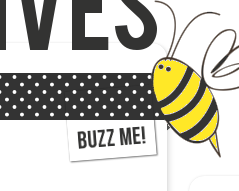Food allergies are misdiagnosed and misunderstood. I've often wondered what it would take for doctors to suspect food allergies when symptoms are present and for others to understand the seriousness of the condition.
When you hear food allergy what comes to mind? Before Bee, my first though would have been peanuts. Everyone has heard of a peanut allergy. The seriousness of that allergy has been well-documented. If you have a food allergy, then you should avoid peanuts!
But wait, you mean other foods can cause allergic reactions as well?
Ok, you have a food allergy, then don't eat the food! It shouldn't be difficult. I won't give it to you, please don't take any, know that you can eat something else-bring it yourself.
A reaction can be caused by simply touching or inhaling an allergen? It doesn't have to be eaten?
Well, this food is free of your allergen, go ahead and eat it! It's safe! I checked the ingredients and read the labels.
Were the utensils I used cleaned thoroughly? Was the food prepared near another food which contained your allergen? You mean I can't use the same knife for both things?
That was me before the diagnosis and the research. I simply did not understand the ins and outs of living allergy free or the serious nature of food allergies.
What did it take for me to be hit with the severity of Bee's life threatening condition? It took a scary anaphylactic reaction and ER visit. Witnessing the life and death situation first-hand taught me more than any education ever could. This was serious and was beyond anything I had previously understood or researched. This was extensive. This was deadly.
I can say that I'm no longer in denial of Bee's condition; I understand the severity. But those around us are uninformed and oblivious to the measures we take to keep her safe. I do my best to educate, to inform, to explain, but how can you understand what you can't see or witness.
The term "food allergy" doesn't carry much weight and it doesn't receive much respect. When you say "food allergy" you are sometimes brushed aside as an over-reactive, over-protective parent. Food allergies don't garner much respect and attention from doctors or the media.
Now, if you stated that your child had cancer you would be met with sympathy, understanding, and compassion. No one would question the diagnosis or the seriousness. Others would understand the life and death implications of the diagnosis. Many would be willing to meet your needs and accommodate you. Cancer is scary, serious, and deadly-no one would deny that.
Why then are other life threatening conditions pushed aside and given no respect? Do we need to rename food allergies "food cancer"? Then would people take us seriously and work with me to protect my child? What would it take to receive widespread respect for this diagnosis?
Food allergies kill. But many of these deaths are preventable. No, there is no cure for cancer, or for food allergies either. However, there is a treatment for food allergies that can be highly effective and life saving-avoiding allergens with strict avoidance.
If only society would accept that there are other deadly diseases which have the potential to kill. If only people would realize that while food allergies and other conditions do not receive the media attention of cancer, they are life threatening as well.
What would it take for everyone to be compassionate of the conditions of others? What would it take to garner respect for food allergies? Do we need to name every potentially fatal condition as a form of cancer? Or are people willing to educate themselves regarding the needs of others and work to find ways to accommodate them?

































